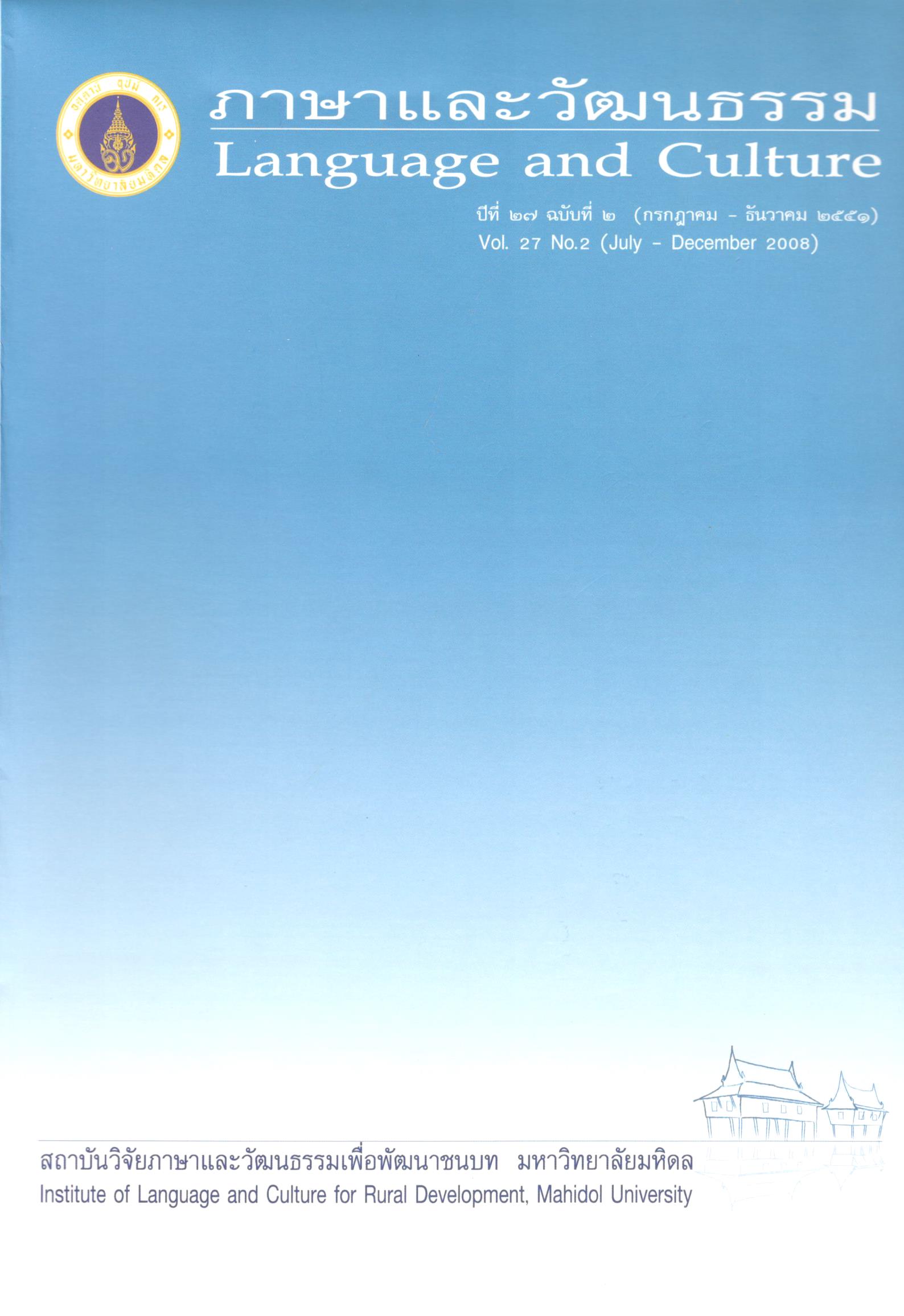Agreement in K'cho
Main Article Content
Abstract
Like other Kuki-Chin languages, K'cho (speaken in Southern Chin State, Myanmar; our consultant is from Sit Hmawi village, Mindat township) has a system of subject and object agreement particles which accompany a finite verb. In this paper, we compare the agreement system in K'cho with that in lai as described in Bedell (1995).
Similarities between the K'cho and Lai systems include the following:
(i) Person agreement particles preceede the verb, with subject agreement particles preceding object agreement particles when both are present
(ii) Some number agreement particles follow the verb.
(iii) There is syncretism of some person agreement particles with others.
(iv) The absence of third person object agreement particles.
Difference include:
(i) The presence of a distinct dual number and inclusive versus exclusive first person plural distinction in K'cho, which are absent in Lai.
(ii) The possibility of two post verbal number agreement particles in K'cho, while only one is possible in Lai. If two are present, the object number marker precedes the subject number marker.
(iii) The absence of a third person subject areement marker in K'cho under certain conditions, while it is required in Lai.
Article Details
The articles featured in the Journal of Language and Culture (JLC) constitute academic works representing the viewpoints of the respective author(s). It is crucial to note that these opinions do not necessarily reflect those of the Editorial Board.
All articles published in JLC are released under the Creative Commons Attribution 4.0 International License (CC BY 4.0). This license grants permission for unrestricted use, distribution, and reproduction in any medium, provided proper credit is given to the original author(s) and the source.


